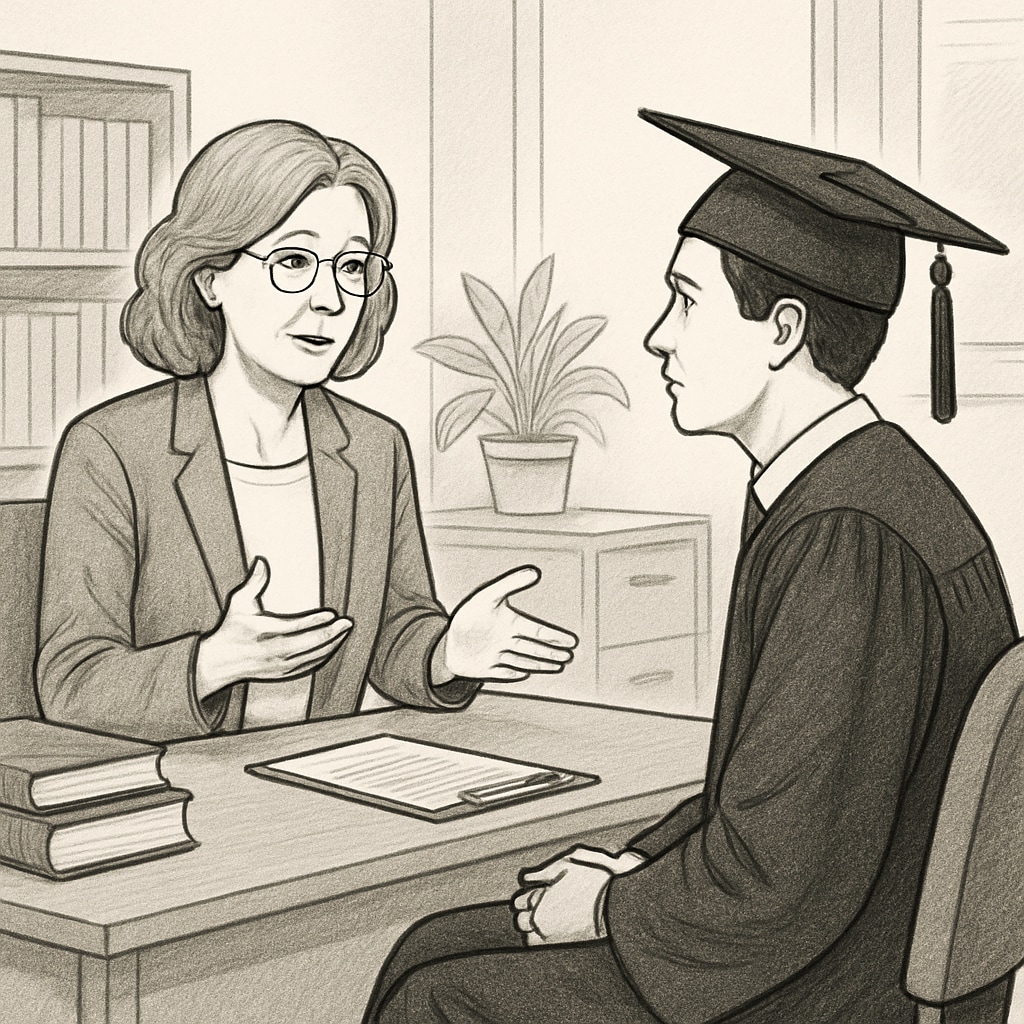Graduate students often encounter challenges when conducting interviews with school counselors as part of their research assignments. These interviews play a crucial role in bridging theory and practice, especially for those studying K12 education. However, navigating the complexities of professional communication and ensuring productive interactions can be daunting. This article provides actionable strategies to streamline the interview process, emphasizes its significance in education research, and outlines methods to establish effective communication channels.

Why Interviewing School Counselors Matters in Graduate Research
The role of school counselors in K12 education is multifaceted, encompassing academic guidance, emotional support, and career preparation for students. For graduate students studying educational psychology, counseling, or related fields, interviewing school counselors offers valuable insights into real-world practices. These interviews help students:
- Understand the practical application of theoretical concepts.
- Identify challenges faced by counselors in diverse educational environments.
- Gather qualitative data for research projects or theses.
For example, school counselors on Wikipedia are described as critical contributors to student success, making their perspectives invaluable for research. However, achieving meaningful conversations requires careful planning and preparation.
Common Challenges Faced by Graduate Students
While the benefits of interviewing school counselors are clear, graduate students often face several obstacles, including:
- Scheduling Conflicts: Counselors are typically busy with their day-to-day responsibilities, making it difficult to find mutually convenient times.
- Lack of Clarity: Students may struggle to articulate their research objectives, leading to confusion during the interview.
- Limited Access: Some schools have strict policies restricting external interviews with staff.
- Nervousness: Inexperienced interviewers might feel intimidated, impacting the quality of their interactions.
Addressing these challenges requires strategic planning and strong interpersonal skills.

Practical Tips for Effective Interviews
To ensure successful interviews with school counselors, graduate students can follow these practical tips:
- Research the Counselor’s Background: Learn about their professional expertise and the school’s environment beforehand to frame relevant questions.
- Prepare a Clear Interview Guide: Develop a concise list of questions aligned with your research goals. Use open-ended questions to encourage detailed responses.
- Communicate Professionally: Reach out via email or phone with a formal introduction and explanation of your research purpose.
- Be Flexible with Scheduling: Offer a range of potential dates and times to accommodate the counselor’s busy schedule.
- Practice Active Listening: Show genuine interest in the counselor’s insights and avoid rushing through the interview.
- Follow Up: Send a thank-you note or email expressing appreciation for their time and expertise.
These steps not only enhance the quality of your research but also foster professional relationships within the education field.
Building Effective Communication Channels
Establishing a strong connection with school counselors requires clear and respectful communication. Consider these methods:
- Utilize School Networks: Reach out to professors, administrators, or alumni who can help facilitate introductions to counselors.
- Leverage Professional Platforms: Websites like Britannica provide credible information about the profession and can help you craft informed questions.
- Build Rapport: Start the conversation with casual, friendly dialogue to create a comfortable environment for the interview.
Effective communication is the foundation for gathering meaningful data and forging long-term professional connections.
In conclusion, conducting interviews with school counselors is an invaluable component of graduate research, especially in K12 education studies. By addressing challenges, preparing thoroughly, and communicating effectively, students can bridge the gap between academic theory and practical application. As a result, they not only enhance their research outcomes but also gain a deeper understanding of the pivotal role counselors play in shaping student success.
Readability guidance: Use short paragraphs, bulleted lists, and clear headings to ensure the content is accessible and engaging. Incorporate transition words like “however,” “therefore,” and “for example” to guide readers seamlessly through the text.


